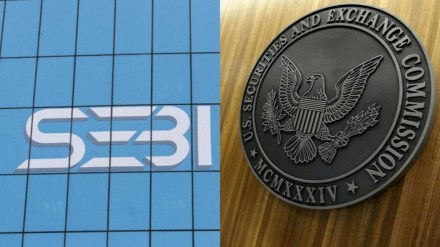The US Securities and Exchange Commission has issued a summons to Adani Group founder and chairman Gautam Adani over an alleged bribery scheme. V Shunmugam looks at the US probe process and whether the Indian markets regulator has a role to play in the investigations
l How is the probe expected to proceed?
THE SECURITIES AND Exchange Commission’s (SEC) charges invoke several key US securities laws aimed at protecting market integrity and investor trust. The SEC seeks permanent injunctions, civil penalties, and officer-and-director bars through complaints filed in the US District Court for the Eastern District of New York. The court will evaluate the evidence, including financial records, communications, and testimonies supporting the allegations. The process will begin with a preliminary hearing to establish the validity of the charges, followed by discovery, where both parties exchange evidence. If the court finds sufficient grounds, the case may proceed to trial, or it could be resolved through a settlement if the defendants agree to penalties and corrective actions. The court will determine whether Adani Group company, Adani Green, and its executives violated US securities laws and, if proven, could impose civil penalties, permanent injunctions, and officer-and-director bans, ensuring accountability and compliance with US regulatory standards.
l Should SEC collaborate with Sebi?
CO-ORDINATING WITH THE Securities and Exchange Board of India (Sebi) would enable the SEC to ensure a comprehensive investigation, address local and global investor concerns, and reinforce confidence in cross-border regulatory integrity. Sebi’s involvement would provide insights into whether Adani violated Indian laws, such as the Sebi (Listing Obligations and Disclosure Requirements) Regulations, 2015 (LODR). A joint investigation would demonstrate a unified regulatory front, protecting the interests of both US and Indian investors. It would avoid duplication of efforts, leveraging the SEC’s expertise in enforcing the Foreign Corrupt Practices Act’s (FCPA) provisions and Sebi’s jurisdiction over Indian-listed entities, access to financial records, and its ability to collaborate with other law enforcement agencies.
l Why Sebi can’t act independently
WHILE SEBI COULD theoretically initiate an investigation under its regulations, the following challenges arise:
– No formal complaint in India: The allegations were raised in the US, with no direct whistleblower or complaint in India to trigger any Sebi investigation.
– Bribery investigations are outside Sebi’s scope. In India, corruption investigations are typically handled by other enforcement agencies.
– Jurisdictional overlap: Without access to evidence collected by the SEC, Sebi’s ability to act would be limited, as bribery allegations often require cross-border cooperation for proper investigation.
The SEC-Sebi collaboration during the investigation into the Satyam Computer Services scandal succeeded through coordinated actions and information sharing. Sebi addressed governance failures and enforced Indian laws, freezing assets and mandating corporate reforms, while the SEC investigated financial misstatements impacting US American Depositary Receipts investors.
l How the SEC can involve Sebi
THE SEC CAN take the following steps to collaborate with the Sebi effectively:
– Formal communication under the existing memorandum of understanding (MoU): Activate the existing MoU to request assistance investigating an India-listed entity’s alleged unethical financial conduct.
– Share evidence: Provide the Sebi with payment records, contracts, and other evidence gathered.
– Identify focus areas: The SEC can request the Sebi to investigate specific aspects, such as compliance with LODR regulations, disclosure of related-party transactions, and governance practices.
– A joint investigation: Both regulatory bodies may establish a joint task force comprising representatives from both regulators to oversee the investigation, ensuring consistent enforcement across jurisdictions.
l Moving this case forward
TO ADDRESS THE allegations, the two regulators need to pool their expertise. The SEC can focus on FCPA violations, while Sebi examines Adani’s compliance with Indian securities regulations. They should maintain transparency by regularly updating investors in the US and India. Coordinated enforcement actions, including penalties and governance reforms, should be implemented if violations are confirmed. By working together, they can ensure a fair and transparent resolution, reinforcing investor confidence and the integrity of global markets. It is all the more critical as the SEC has raised allegations about an Indian-listed entity to protect the interests of US investors.Such collaboration would set a strong precedent for handling cross-border regulatory issues involving corporations operating across jurisdictions.
The writer is partner, MCQube. Views are personal.
